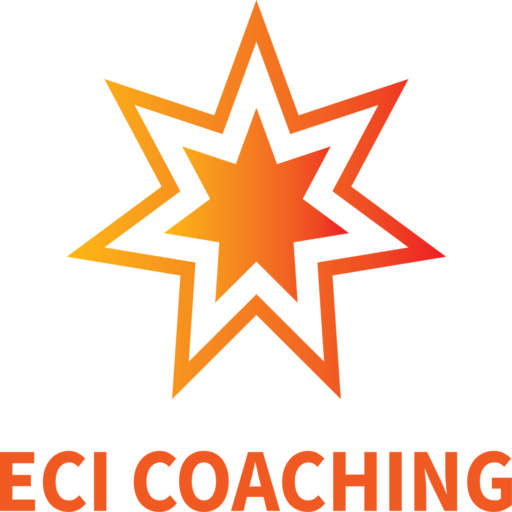How is Active Listening Used in Coaching?

One of the defining traits of an exceptional coach is strong communication. But what does it truly mean to be a great communicator? While it’s often associated with speaking eloquently or having a strong command of language, communication goes far beyond that for coaches.
Great coaching communication starts with listening. Not just hearing words but truly tuning in to the client’s message and needs. In other words, it starts with active listening.
What is Active Listening?
Active listening involves fully concentrating on the speaker, genuinely understanding their message, thoughtfully responding, and retaining key information for future reference. This mutual engagement keeps both the listener and the speaker fully present in the conversation.
However, reflecting, responding, and offering meaningful feedback while actively listening can be challenging and will take some practice. To guide you, keep in mind these elements for active listening:
- Observe non-verbal cues: Pay attention to the speaker’s tone, facial expressions, and body language to gain deeper insight into their emotions and intent.
- Show you’re engaged: Use visual cues like nodding, maintaining eye contact, and open body posture. Ask thoughtful, clarifying questions to confirm your understanding.
- Minimise distractions: Silence notifications and ensure you’re in a space free from interruptions so your focus stays on the speaker.
- Listen without judgment: Resist the urge to jump in with opinions or solutions. Instead, validate the speaker’s perspective by listening with empathy.
- Verify understanding: Paraphrase or summarise what’s been said to ensure alignment and show that you’ve truly heard them.
- Be prepared: Keep your active listening skills sharp and ready to use in any coaching or leadership interaction.
Why is Active Listening Important?
In the coaching profession, active listening skills are the foundation of creating a meaningful and impactful relationship with clients. When used with intention, active listening builds trust with your clients, deepens connection, and potentially inspires their lasting transformation.
Building Relationships
When coaches actively listen to their clients, they create a safe, non-judgmental space where everyone feels truly heard and understood. To do so, it’s important for coaches to listen without interrupting, making assumptions, or rushing to solve problems. This, in turn, promotes a strong sense of rapport and trust, encouraging clients to open up, explore vulnerable thoughts, and express authentic emotions.
Facilitating Growth
By tuning into both spoken words and unspoken cues, coaches can better understand their clients’ goals, limiting beliefs, and internal conflicts. This insight allows coaches to ask powerful, targeted questions that guide clients toward greater clarity and self-discovery.
How Active Listening Can Be Used in Coaching
These are some practical ways to apply active listening in coaching:
1. Asking Powerful Questions
Active listeners pick up on more than just words. They can notice emotional undertones, pauses, hesitations, and recurring themes. By tuning in deeply, coaches can craft powerful, open-ended questions that prompt clients to reflect, clarify, and challenge their own assumptions.
2. Identifying Underlying Beliefs
Clients don’t always verbalize their deepest concerns or limiting beliefs. Through active listening, a trained coach can detect subtle patterns or contradictions that hint at deeper issues. With gentle probing and clarifying questions, coaches help bring these hidden thoughts to the surface, making it possible to address the real challenges, not just the symptoms.
3. Supporting Self-Discovery
One of the core goals of coaching is to encourage clients to find their own answers. Active listening creates a safe, supportive environment where clients feel heard and validated. This space encourages self-discovery, as clients are not led but guided. When clients uncover insights on their own, they’re more likely to commit to action and stay engaged in the coaching process.
4. Providing Feedback
Feedback is most effective when it aligns with the client’s personal experience. That’s why coaches who listen actively can mirror what the client has shared in a respectful and meaningful way. This makes feedback feel less like criticism and more like collaboration. It builds trust, enhances self-awareness, and ensures the client feels supported, not judged.

The 4 Levels of Listening in Coaching
To truly understand active listening, start by identifying which level of listening you naturally engage in. From there, it’s essential to acknowledge where you are and intentionally develop your listening skills so you can better support and respond to your clients’ needs.
Level 1: Internal Listening
At this level, the listener is primarily focused on themselves. You may hear the speaker’s words, but your mind is busy comparing their story to your own experiences or preparing what to say next. This is the default mode for most of us in everyday conversations, and while it’s common, it’s not ideal in coaching.
When coaches are still internal listeners, they could have the tendency to miss key insights or emotions from the client. It risks turning the session into a coach-centered exchange rather than a client-focused journey. However, it’s not without merit. Internal listening can be useful in casual settings or brainstorming sessions where building on each other’s ideas is the goal.
Level 2: Focused Listening
For this level of listening, your attention shifts outward to the client. You’re no longer caught in your own head. Instead, you’re deeply tuned in to what the speaker is saying, how they’re saying it, and what emotions might be underneath their words.
In coaching, this is where true understanding begins. You’re not just hearing facts; you’re sensing meaning. By being fully engaged, the coach becomes a supportive partner, validating the client’s experience and encouraging deeper self-expression. This level is essential for building trust and rapport.
Level 3: Global Listening
Global listening takes things even further. At this level, you’re not only hearing what’s being said but also noticing what’s not being said through body language, tone of voice, pauses, hesitations, and even shifts in energy.
This holistic awareness helps coaches sense when something matters deeply to a client, even if the client isn’t consciously aware of it. A subtle sigh, a change in posture, or an emotional pause can signal something important. When a coach listens globally, they can ask the kinds of questions that help unlock powerful realizations and breakthrough moments.
Level 4: Active Listening
Active listening integrates all the previous levels but with an added layer of intentionality. Here, the coach is fully present, listening with empathy, without judgment, and focused entirely on the client’s words, emotions, and unspoken needs.
It also involves responding thoughtfully, asking clarifying or reflective questions, and making the client feel genuinely heard and understood. This level of listening promotes self-discovery, encourages accountability, and deepens the coaching relationship.
How ECI Coaching Can Help
Active listening is a foundational skill for every effective coach, whether you’re guiding clients in Singapore or across the globe. It’s more than just hearing words; it’s about being fully present, empathetic, and attuned to both what’s said and what’s left unsaid. At ECI Coaching, we understand how critical this skill is in the coaching journey. That’s why our training goes beyond theory, helping aspiring coaches cultivate real-world competencies that lead to deeper client engagement and transformational conversations.
As the only training provider in Singapore offering two unique ICF coaching pathways, we are uniquely positioned to support your development. Whether you’re starting your journey toward your ACC certification or seeking to elevate your leadership capabilities, our certified coaching programs are designed to help cultivate the mindset and confidence you need to succeed. With ECI, you’re not just learning coaching; you’re becoming a coach who listens with intention, leads with clarity, and drives meaningful change.

